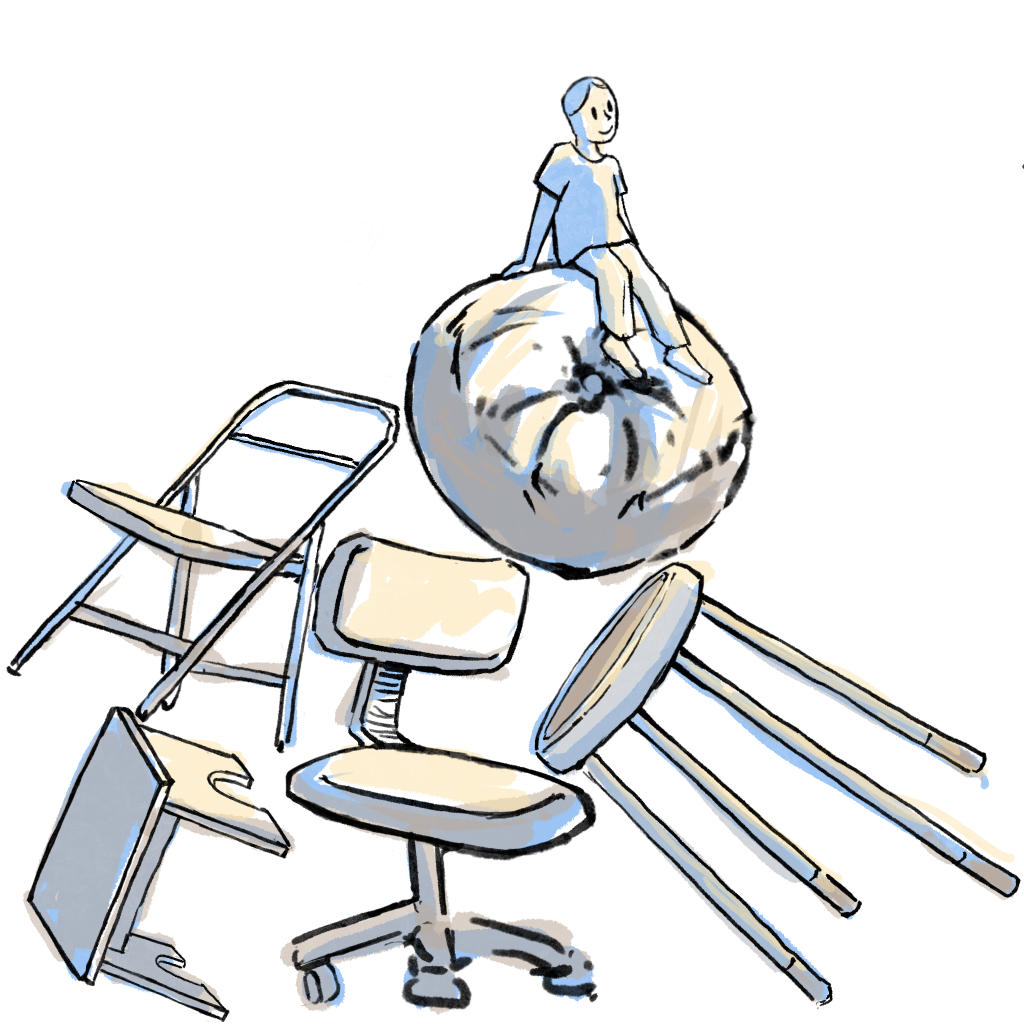In the rapidly evolving educational landscape, providing students with comfortable and practical seating is paramount. The traditional notion of rows of rigid desks and chairs is gradually giving way to more versatile and innovative options, with classroom chairs gaining popularity. This article explores the various chairs for a classroom that are tailored to enhance student success, focusing on their ergonomic benefits, design considerations, and the impact on the learning environment.
The Ergonomic Advantage
Ergonomics in the Classroom
The ergonomic design of classroom chairs is a game-changer. These chairs are meticulously crafted to promote comfort and good posture, essential for prolonged periods of studying. Ergonomic chairs often feature curved seats, lumbar support, and adjustable height options, ensuring that students can sit comfortably for extended periods without fatigue.
Healthier Posture for Students
One of the key advantages of ergonomic chairs is the encouragement of a healthier posture. By allowing students to sit in a more dynamic manner, these chairs help prevent the discomfort associated with traditional rigid seating. This improved posture can positively impact a student’s concentration and overall well-being.
Design Considerations
Aesthetic Appeal
Classroom chairs come in various designs, from sleek and modern to traditional and classic. Aesthetics are crucial in creating an engaging and pleasant learning environment. Schools and educators can choose chair styles that match their interior decor and create a cohesive atmosphere that promotes learning.
Versatility and Mobility
Versatile chair designs allow for easy movement within the classroom. Chairs with swivel features or caster wheels provide students with the freedom to shift their positions or collaborate with peers effortlessly. This mobility can foster active engagement and interaction in the classroom.
Storage and Space Efficiency
Space optimization is crucial in classrooms of all sizes. Many chair designs are stackable or collapsible, making them easy to store when not in use. Such space-efficient options maximize the available room for various activities and configurations.
Impact on the Learning Environment
Enhancing Focus and Concentration
The right choice of classroom chairs can significantly impact students’ ability to focus and concentrate. Ergonomic and comfortable seating reduces distractions caused by discomfort, allowing students to direct their attention to the lesson at hand.
Promoting Collaboration and Interaction
Collaborative learning is a prevalent pedagogical approach, and classroom chairs are well-suited to facilitate it. Their mobility and adaptability encourage students to work together, fostering teamwork and the exchange of ideas.
Creating a Positive Atmosphere
A well-designed and comfortable classroom sets the stage for a positive learning atmosphere. When students feel comfortable and engaged in their environment, they are more likely to approach their studies with enthusiasm and a positive attitude.

Customizing Chair Styles
Tailoring Chairs to Educational Needs
Different subjects and teaching methods may benefit from specific chair styles. For instance, science labs may require chairs with adjustable height for experimentation, while art classrooms might prioritize chairs that swivel for ease of movement while working on projects.
Personalization and Student Choice
Allowing students to have some say in their seating preferences can also be beneficial. Offering a variety of chair styles and letting students choose the one that suits them best helps them own their learning space.
Sustainability in Classroom Seating
Eco-Friendly Chair Choices

In an age characterized by an increasing focus on environmental consciousness, numerous educational institutions are giving prominence to sustainability when making decisions about their seating options. Some classroom chair styles are crafted from eco-friendly materials like recycled plastics, reclaimed wood, or sustainably sourced bamboo. By opting for these environmentally responsible options, schools can instill in their students a sense of responsibility towards the planet and contribute to a greener future.
Long-Term Value
Consider classroom chairs as an investment in the future of education. Although the initial expense might appear substantial, top-notch chairs are engineered to endure the demands of daily classroom use over the long term. This longevity translates to long-term value, as schools won’t need to replace furniture as frequently, ultimately saving money in the long run. By investing in durable and ergonomic seating, educational institutions send a clear message that they prioritize the well-being and success of their students.
Cost Considerations
Balancing Quality and Budget
While there is a wide range of classroom chair styles available, schools must strike a balance between quality and budget constraints. Investing in durable, comfortable chairs can lead to long-term savings as they are less likely to require frequent replacement.
Exploring Budget-Friendly Options
For institutions with limited budgets, there are budget-friendly chair options that still offer ergonomic benefits and durability. Conducting research and making comparisons among various brands and models can aid schools in discovering cost-effective solutions that do not compromise on quality.
The choice of chairs for a classroom is no longer a simple matter of aesthetics; it’s a vital consideration in creating an environment conducive to student success. Ergonomic designs, versatile options, and thoughtful customization can all contribute to a positive and effective learning space. By carefully selecting chair styles that prioritize comfort, collaboration, and mobility, educators can help students thrive in the modern classroom, setting them on a path to academic excellence and a lifelong love of learning.























